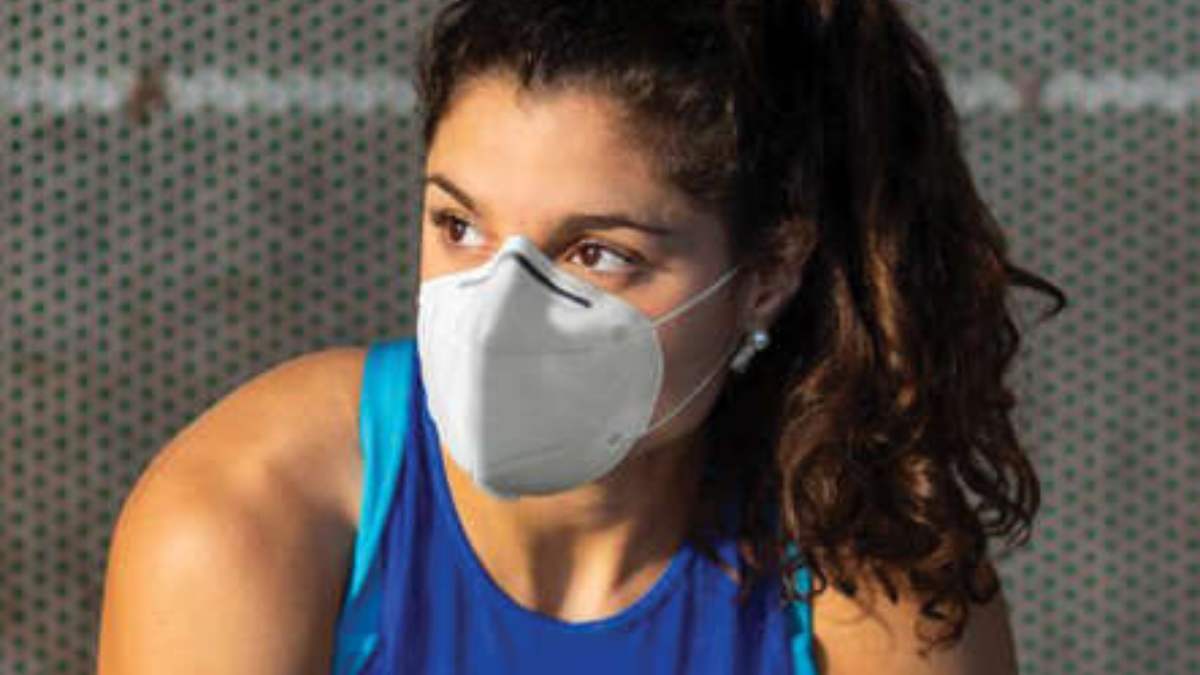


Amid rising Covid-19 cases in the city, the Delhi Disaster Management Authority (DDMA) re-imposed a fine of Rs 500 for not wearing face masks in public places. The DDMA on Wednesday held a meeting over the prevailing Covid-19 situation. It was decided during the meeting to make wearing masks mandatory and also reinforce the Rs 500 penalty for defying the norm. Nearly three weeks ago, when Delhi witnessed a dip in the daily infections, the DDMA had issued an order removing the fine for not wearing masks. However, it had advised people to continue using them in crowded places.
Sources said that schools will continue to remain open and standard operating procedures would be issued after consultation with experts. The DDMA officials have also called for ramping up testing, sources said. Over the past few days, the daily Covid-19 infection has been on the rise. On Wednesday, Delhi’s new Covid cases breached the 1,000-mark, with the national capital recording 1,009 fresh cases. The country as a whole reported 2,067 new Covid cases. Delhi’s positivity rate climbed up to 5.7%.
Union Health Secretary Rajesh Bhushan on Tuesday had written to the governments of Haryana, Uttar Pradesh, Delhi, Maharashtra, and Mizoram over the increasing positivity rate and cases and urged all states and union territories to continue monitoring the spread of the infection.
India’s effective reproduction number (R) for Covid, an indicator of how quickly the infection is spreading, has increased to over 1 for the first time since January, a researcher from Chennai’s Institute of Mathematical Sciences has estimated. The country’s R value, steadily increasing over the last few weeks, is 1.07 for the week between April 12-18, according to Sitabhra Sinha. In the preceding April 5-11 week, it was 0.93. The last time the R was above 1 was in the week between January 16-22, when the value was 1.28, Sinha said. “This increase in R-value is not just because of Delhi but also Haryana and Uttar Pradesh,” the mathematician, who has been tracking R for India since the beginning of the pandemic, told a news agency. An R value over 1 indicates that the number of active cases has increased. R should be contained below 1 to control the pandemic.
Almost all major cities—Mumbai, Bengaluru and Chennai—are showing R values above 1. In fact, Delhi and Uttar Pradesh have an R value above 2. Data for Kolkata was not available, Sinha said.
Even as some of the states and Union Territories are seeing a significant rise in the number of Covid-19 cases, a top scientist believes that the surge in infection will not lead to the fourth wave by any chance. The former Chief Scientist of the Indian Council of Medical Research (ICMR), Dr R. Gangakhedkar said that India has sublineages of the Omicron variant, but no new variant has been reported so far and the chances of the fourth wave can’t be seen as of now. “I don’t think this is the fourth wave by any chance. One thing we have to understand is that the entire world continues to have BA.2 variants, which is infecting people every day,” he said.
He further elaborated that due to the opening of schools and colleges, the people have become socially active resultantly the surge in cases is being witnessed. “The second issue is that we have allowed the schools to open as well as the college students are moving now. The result is now that they are out in the open, they are getting infected and clusters of those infections can be sizable mainly because of social networks,” said Dr Gangakhedkar. According to Dr him, “The withdrawal of the use of masks is also the reason for the surge in cases. It is also true that some of us still have misunderstood the mandatory use of masks, which has been withdrawn. Some of us may be presuming that there is no fear of acquiring any infection so I can move freely and they have stopped using the mask and therefore, they also get infected if they come in contact with somebody who’s infected as of now.” “So essentially this kind of a reaction when you relax the lockdown is more likely to come and we may see a smaller surge,” he added while cautioning against removing masks. He also said that infection from Omicron is going to persist for six to nine months and recombinant variants are an accident that will not lead to the fourth wave.